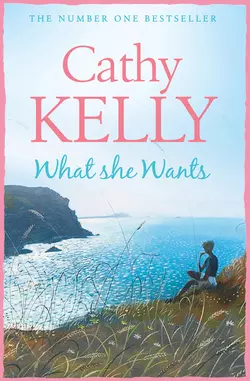What She Wants

Cathy Kelly
Тип: электронная книга
Жанр: Современная зарубежная литература
Язык: на английском языке
Стоимость: 463.36 ₽
Статус: В продаже
Издательство: HarperCollins
Дата публикации: 16.04.2024
Отзывы: Пока нет Добавить отзыв
О книге: A warm and funny novel about facing change in our live, from the internationally bestselling author Cathy Kelly.Do you know what you’ll be doing next year? Nicole, Virginia, Hope and Sam all thought they did.Hope Parker imagined that she’d be slogging it out as a working mum, trying to fit it in quality time with her young children, and doing her best not to burn her husband, Matt’s dinner.Her sister, Sam Jones, thought she’d be turning heads in her new job as a managing director of a record label, climbing to very top of the career ladder and having her photo emblazoned on the business pages as the toughest, most brilliant company boss around.Wild child Nicole Turner reckoned that she’d still be going for wild party nights with the girls, maybe singing a bit of karaoke, possibly snogging a guy here or there, and trying not to get fired for using the office phone to make personal phone calls.And grandmother Virginia Connell thought she’d still be happily married to her beloved Bill, teasing him for spending too much time on the golf course and not enough time walking the dog or cutting the grass.But they were all wrong. When life changes suddenly for each of these four women, thay have to look deep inside themselves to discover what they really want in order to survive the turmoil. And they discover that a sense of belonging, a loving family and good friends can make all the difference.